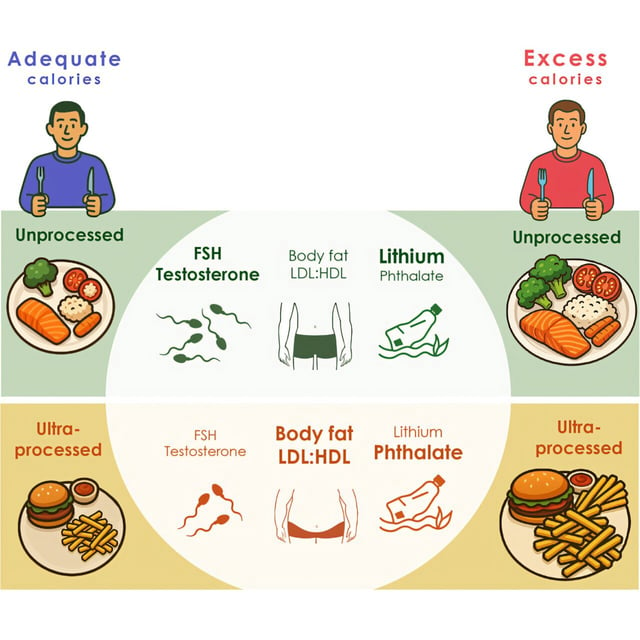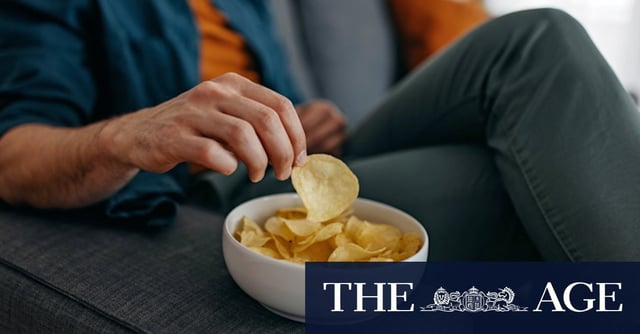Overview
- In a randomized crossover feeding study, 43 men aged 20–35 spent three weeks on minimally processed and ultra-processed diets separated by a three-month washout.
- Both diets were matched for calories and macronutrients, yet participants accumulated about 1 kilogram more fat mass during the ultra-processed phase.
- Researchers measured higher levels of the phthalate metabolite cxMINP during the ultra-processed diet, indicating increased exposure to a hormone-disrupting contaminant.
- Testosterone and follicle-stimulating hormone decreased on the ultra-processed diet, adding reproductive concerns to the metabolic effects observed.
- Authors from the University of Copenhagen and Université Côte d'Azur call for guideline revisions, while noting the study’s short duration, small size, and male-only cohort.


